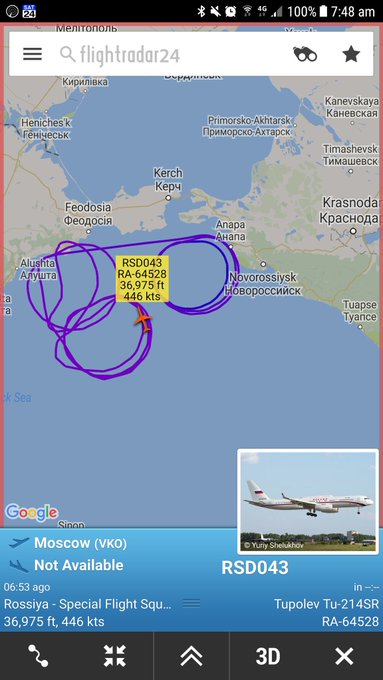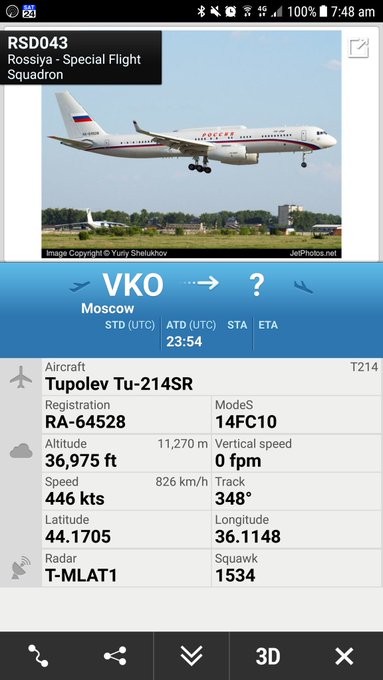As reported by Forbes: A group of leading retailers and food companies including Nestlé, Walmart and Unilever have signalled their commitment to “strengthen consumer confidence” in the foods they purchase by announcing a major blockchain collaboration with IBM. The consortium will work with ‘Big Blue’ to identify the “most urgent areas” across the global food supply chain that could benefit from the blockchain.
Highlighting matters, every year one-in-10 people fall ill (c.600 million) globally and around 420,000 die as a result of contaminated food, according to global estimates of foodborne diseases from the World Health Organization (WHO). These diseases were cited as being caused by diseases caused by 31 agents - bacteria, chemicals, viruses, parasites and toxins.
The findings contained in a WHO report titled ‘Estimates of the global burden of foodborne diseases’ (December 2015), were the most comprehensive published at the time and found that almost 30% of all deaths from foodborne diseases are in children under the age of five years (c.125,000).
Many of the critical issues impacting food safety such as contamination, food-borne illness, waste and the economic burden of recalls rest though on a lack of access to information and traceability.
Given that today nobody currently oversees the entire supply chain and traceability is undertaken only in a linear fashion, this is where the blockchain is being pitched as playing a pivotal role.
By using blockchain, when a problem arises, the potential is to quickly identify what the source of contamination is since one can see across the whole ecosystem and where all the potential points of contamination could be - using the data to pinpoint the source. As such it is “ideally suited” according to IBM to address these challenges because it establishes a trusted environment for all transactions.
It can indeed take weeks to identify the precise point of contamination, causing further illness, lost revenue and wasted product.
Take, for example, the recent incidence of salmonella infections linked to imported Maradol papayas, which required over two months to identify the farm source of contamination according to the Centers for Disease Control and Prevention. Among a number of people who were hospitalized between May 17 and July 21 this year, one death was reported from New York City.
Concurrently with news of its consortium with ten leading retail and food companies, which besides Nestlé and Walmart includes Dole, Driscoll’s, Golden State Foods, Kroger, McCormick and Company, McLane Company, Nestlé, Tyson Foods, Unilever - Big Blue also announced the introduction of the “first fully integrated, enterprise-ready” IBM Blockchain platform to accelerate adoption and new academic and developer initiatives to advance Blockchain skills.

In an effort to expand the blockchain ecosystem across academia and the start-up community, IBM is working with select universities including Fordham University, University of Arkansas, University at Buffalo and University of British Columbia to fund research grants, develop customized curricula and host workshops and hackathons.
Global Food Supply Chain
The food supply chain is depicted generally as being composed by three main levels: (1) Agricultural production; (2) Industrial processing; and, (3) Wholesale or retail distribution. However, with closer examination it becomes more complex, involving a series of other stages and links that add value to the chain - either in the form of goods or services inputs - such as the seed provider – and ending with the final consumer.
All participants in the global food supply chain - from the growers to suppliers and processors and right through distributors to retailers, regulators and consumers - can through this latest IBM initiative gain “permissioned access” to known and trusted information regarding the origin and state of food for their transactions.
In so doing it enables food providers and other members of the ecosystem to use a blockchain network to trace contaminated product to its source in a short amount of time and stem the spread of illnesses.
The consortium development involving Big Blue comes a month after Ambrosus, claimed to be the world’s first ‘trusted’ blockchain-based ecosystem for the food supply chain launched and unveiled a token sale for Amber scheduled for this September.
Co-founded by Swiss-based CEO Angel Versetti and CTO Dr Stefan Meyer last year, Ambrosus combines high-tech sensors, blockchain technology (built on the Ethereum Blockchain) and smart contracts.
Development of the Ambrosus ecosystem and a system of interconnected quality assurance sensors is touted as being able to “reliably record the entire history of food from farm to fork” according to the company. The project’s efforts have been officially endorsed by EIT Food and Swiss Quality and Safety Association.
Ambrosus’ CEO Versetti noted this July that at present the global system of food production and distribution “does not adequately serve the needs of our society” with “little trust amongst consumers, poor living standards for farmers, malpractice within supply chain networks or by large manufacturers and regular major food scandals.” So there’s work to be done.
He added: “Blockchain can protect the integrity and verifiability of sensor data, while smart contracts can enable automatic governance of food supply chains and manage commercial relationships between the different actors within them.”
Food Safety Pilot Projects
For its part, IBM has already completed multiple pilots specific to food safety in order to successfully demonstrate the ways in which blockchain can positively impact global food traceability.
Insights from those projects, in addition to input from the 10 retail and food groups in the latest consortium as well as others, will be used by IBM to identify and “prioritize the key areas” where blockchain can further benefit food ecosystems. This, it is said, will help “ensure problems can be addressed with surgical precision when they arise.”
Among specific pilot projects undertaken, a collaboration between IBM, Walmart and Tsinghua University was announced in October 2016 to improve the way food is tracked, transported and sold to consumers in China and are creating a new model for food traceability. By using blockchain technology to build transparency and efficiency in supply chain record-keeping, this work aims to help ensure food safety for Chinese consumers.
Tsinghua University brings its expertise in transaction security and authentication technology to the table, while Walmart is a global leader in supply chain, logistics and food safety. Early trials in China and the US are understood to have shown how blockchain technology digitally tracks food products from pork and mango suppliers to store shelves and ultimately to consumers.
Product information (e.g. farm origination details, batch numbers, factory and processing data, expiration dates and shipping detail) is digitally connected to food items and entered into the blockchain at every step of the process. Each piece of information serves to provide critical data points that could potentially reveal food safety issues with the product.
In another example, Walmart, which is regarded as having one of the best food traceability systems in the industry, completed a test using traditional methods to trace the origin of mangoes, which took them six days, 18 hours and 26 minutes to trace a package of mangoes to the exact farm of origin. By using blockchain, it took just 2.2 seconds.

New IBM Blockchain Platform
Beyond food supply chain applications, blockchains are now being used to transform processes and streamline transactions for everything from flowers, real estate and banking, to education, government and health care. In fact hardly a day passes without an industry or sector being considered ripe for blockchain application.
To accelerate this adoption, IBM is introducing the first fully integrated, enterprise-grade production blockchain platform on the IBM Cloud, as well as consulting services. This will allow more organizations to swiftly activate their own business networks and access the vital capabilities needed to successfully develop, operate, govern and secure these networks.
Running in the IBM Cloud, it is said to offer “unique protection” from insider credential abuse, protection from malware, and hardware encryption key protection, with the IBM blockchain platform providing the “highest-level tamper resistant” FIPS140-2 level 4 protection for encryption keys.
For developers, they can create standard business language in JavaScript and the APIs help keep development work at the business level, rather than being highly technical and making it possible for most any programmer to be a blockchain developer.
The platform is described as being designed to address both business and technical requirements, and incorporates insights gained as IBM has worked with over 400 organizations since February 2016 on blockchain projects across industries including financial services, supply chain and logistics, retail, government and health care.
And, while the platform offers all participating members some control, it prevents any one member from having exclusive control through a new class of democratic governance tools.
Tested and piloted extensively, the platform is held up addressing a wide range of “enterprise pain points” around security, performance, collaboration and privacy that IBM maintained no other blockchain platform delivers currently today.
It includes innovation developed through open source collaboration in the Hyperledger community (of which IBM was an early member), including the newest Hyperledger Fabric version 1.0 framework and Hyperledger Composer incubation project.
The Integrated platform allows multiple parties to jointly develop, govern, operate and secure blockchain networks to help enterprises accelerate blockchain adoption.
Marie Wieck, IBM General Manager, Blockchain, commenting in the wake of the latest developments said: “Unlike any technology before it, blockchain is transforming the way like-minded organizations come together, enabling a new level of trust based on a single view of the truth.”
She added: “IBM’s platform further unleashes the vast potential of this exciting technology, making it faster for organizations of all sizes and in all industries to embrace blockchain and improve the way business gets done.”
Blockchain Advances
In addition to food safety, IBM is advancing other blockchain supply chain initiatives using the IBM Blockchain Platform for an automated billing and invoicing system.
Initial work to use blockchain for invoicing for instance is underway starting with Lenovo, which will provide an audit-ready solution with full traceability of billing and operational data, and help speed on-boarding time for new vendors and new contract requirements.
To complement the new platform, IBM Global Business Services offers blockchain services, which bring industry expertise from its 1,600 blockchain consultants who have helped clients deploy and integrate active networks and help realize optimal value.
In terms of resulting efficiencies brought about by such deployments, clients have been able to reduce back office processes “by up to 30% and cycle time of accounts receivable by 50%”, thereby unlocking millions of dollars in cost savings and market capital. The IBM Blockchain Platform provides a range of pricing options, which start at $0.50 per hour.
Going forward the companies involved in the latest global food supply chain collaboration with IBM will help identify the benefits or shared value that resonates for everyone in the network and make sure it is a solution everyone can use - from the farmer in the field to the packer in the packing house to the retailer. And, ensure it meets the industry’s needs for security and scalability.
Despite IBM being canvassed on the financial details of its latest collaborations none were disclosed.










 Russian Special Flight Squadron
Russian Special Flight Squadron